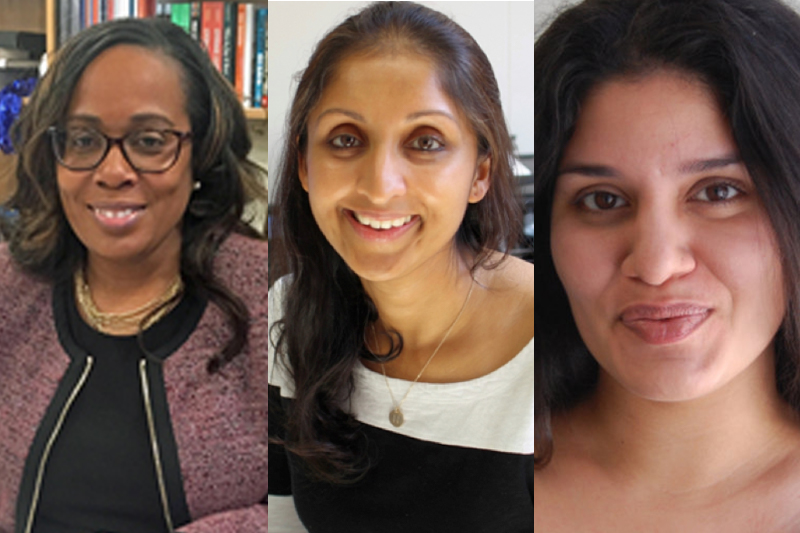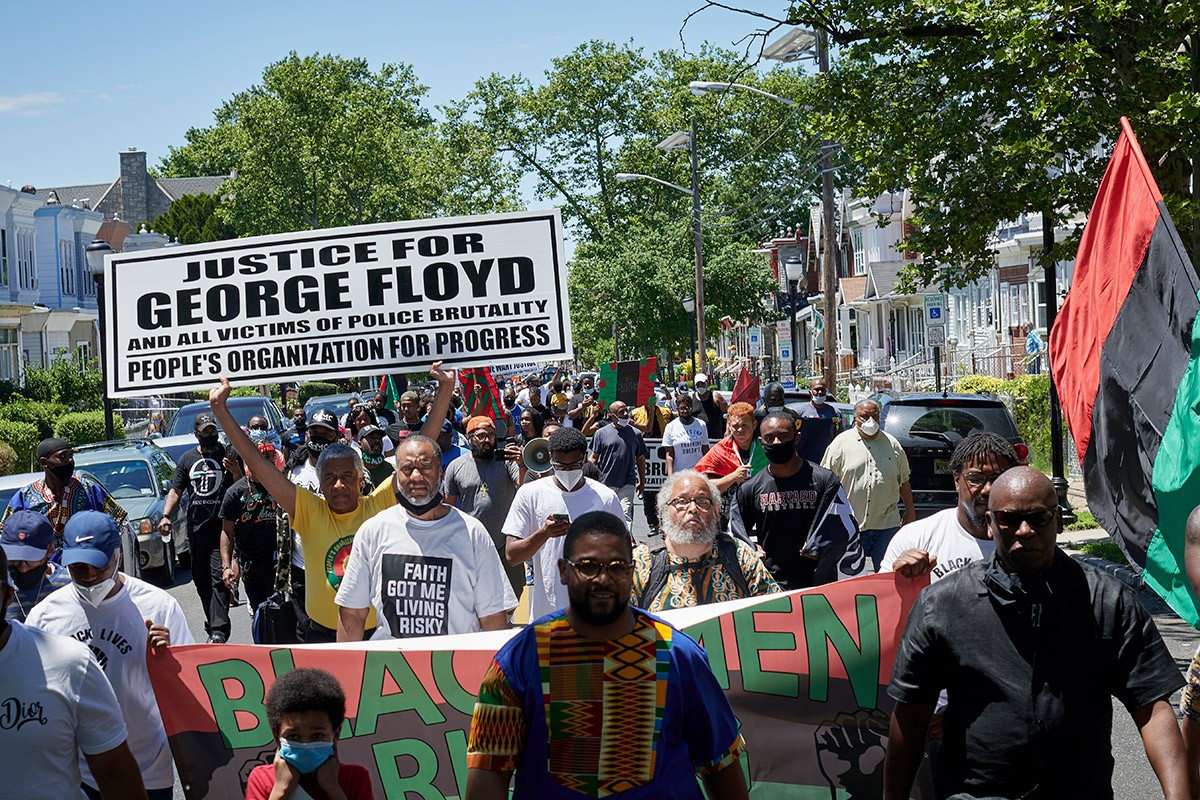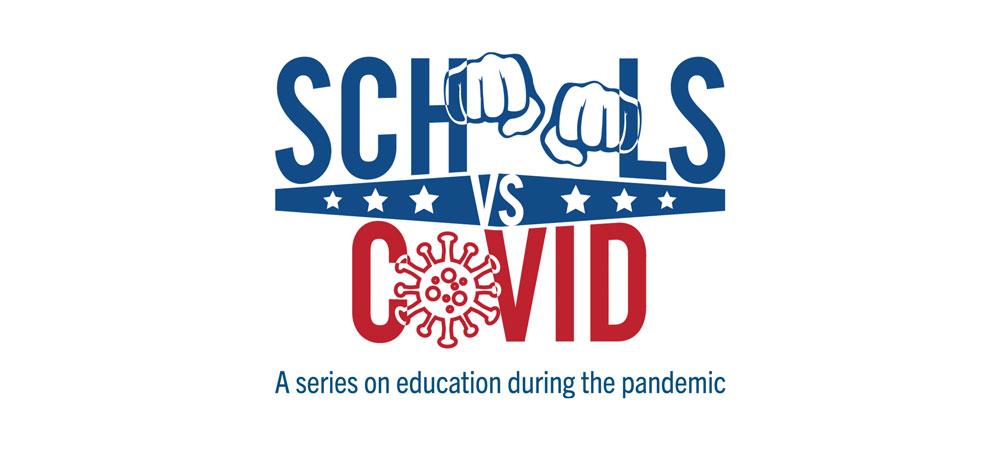For people of color in America, surviving the COVID pandemic thus far has meant coping with a huge additional stress: The police killings that have pushed the Black Lives Matter movement to the forefront.
For many educators, school psychologists and public health experts, that reality simply confirms an already obvious truth.
“We’re collectively recognizing that racism is a public health issue, which is long overdue. And if we are going to effectively address health inequities, we have to effectively address — and actively fight — against, racism, too,” says Sonali Rajan, Associate Professor of Health Education.

CONFRONTING A REALITY From left: Camden, New Jersey schools Superintendent Katrina McCombs and TC faculty members Sonali Rajan and Prerna Arora agree that schools must explicitly deal with the issue of systemic racism.
In schools, that means that all grownups — including school psychologists — must be prepared to answer questions about systemic racism and Black Lives Matter, says Prerna Arora, Assistant Professor of School Psychology and Director of Teachers College’s School Mental Health for Minority Youth and Families (SMILE) Research Lab.
“Most school psychologists in this country are White females,” Arora says. “They need to be comfortable discussing this topic, and that means they need to understand how to ask questions and how to explore their own racial identity, their role in systemic racism and their feelings of White guilt. In our program at TC, we ask our students to be aware of these concerns and to address them in relationships with children and families.”
Ultimately, she adds, “people aren’t going to trust schools and school communities if they don’t believe those communities support them. So how we respond to Black Lives Matter is critical.”
In the public schools in Camden, New Jersey, the response shaped by Superintendent Katrina McCombs (M.Ed. ’96) has been predicated on that same belief.
So many young people of color being shot and killed unnecessarily at the hands of police — it’s had an enormous impact on the psyche of our community.
—Katrina McCombs (M.Ed. '96), Superintendent, Camden (N.J.) Public Schools
“So many young people of color being shot and killed unnecessarily at the hands of police — it’s had an enormous impact on the psyche of our community,” says McCombs, whose student population in Camden is half African American, half Latinx. “The killing of George Floyd was so very overwhelming.”
McCombs praises the city’s police department as a model of community policing, but says staff, teachers and family members were all requesting support from the district on how to talk to the children about what was happening on a national level.
“It really focused us, as an educational organization, on what is it that we need to do? What actions do we need to take to support our students and families now, but also to make sure that we are building up our students’ resilience, building up our students’ ability to understand that they are cared for, that they are valued, despite what they may see happening in front of them.”
We’re collectively recognizing that racism is a public health issue, which is long overdue. And if we are going to effectively address health inequities, we have to effectively address — and actively fight — against racism, too.
—Sonali Rajan, Associate Professor of Health Education
After the killing of George Floyd by police in Minneapolis, Camden closed its schools for a day of reflection.
“We needed to think about the impact of what was happening in the context of our nation's history, and how to support our students and families, how to build up our students’ resilience and let them know they are cared for, they are valued, despite what they may see happening in front of them,” McCombs says.
Ultimately, McCombs acted on three fronts.
First, she called for the review and revision of the Camden school system’s curricula around persons of color — “our African American history courses and how we teach students who are Latinx about their backgrounds.”
Most school psychologists in this country are White females. They need to be comfortable discussing this topic, and that means they need to understand how to ask questions and how to explore their own racial identity, their role in systemic racism and their feelings of White guilt.
—Prerna Arora, Assistant Professor of School Psychology
Second, she called on the city to rename Camden’s largest comprehensive high school, Woodrow Wilson High School. “Because of the segregationist practices and racist views of Woodrow Wilson, despite all of his other accomplishments, we felt that name did not show our students who walk in and out of those doors every day that they are valued,” McCombs says. A committee made up of the school’s alumni and current students is still working on the issue. “We really want it to be a learning experience for our students about how you can respond in a productive way to things happening in society that you’re not comfortable with.”
McCombs also sought to ensure that Camden students who are of age understood the importance of their right to vote and know how to do it, remotely or otherwise.
“We didn't want our community not to vote because things seemed too weird or because they saw too many hurdles. So we’ve provided tutorials, not delving into students’ political views — because your choice is your choice — but just making sure that our families and students know how to obtain absentee ballots or whatever else might be a potential barrier for them.
“Racism is the other, ongoing pandemic that affects our society. It’s going to take so much more to defeat it, but we wanted to start somewhere.”

